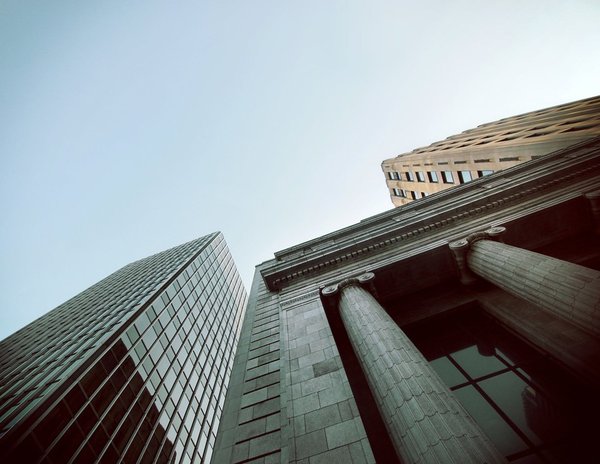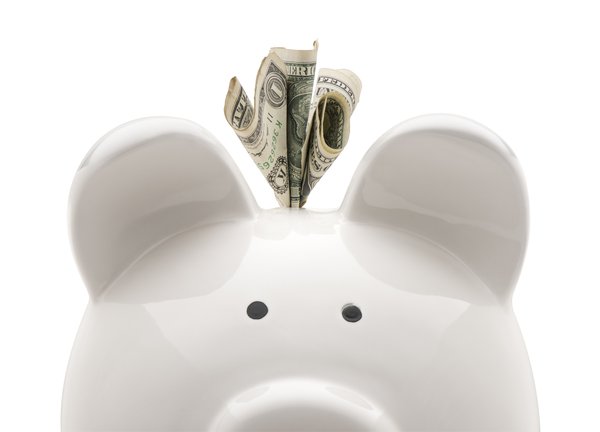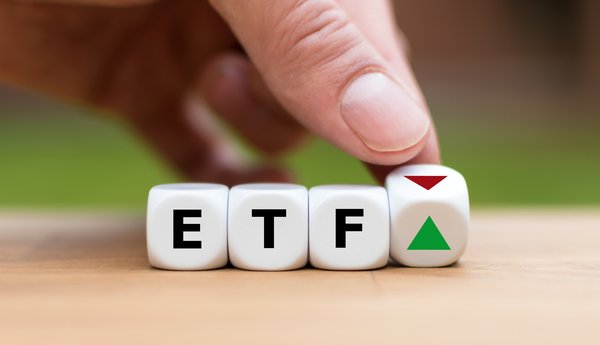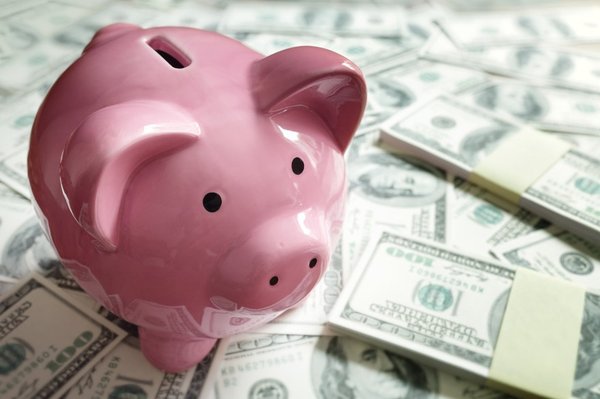Cyclical stocks are issued by companies whose businesses and stock prices tend to follow the business cycle. They generally perform very well during economic expansions but typically underperform during recessions as sales drop.
Automakers are a good example of the type of companies that tend to be cyclical. When a recession hits, consumers can decide to wait longer to buy new vehicles, so sales fall. Airlines, hotels, restaurants, and most discretionary retailers, such as apparel companies, also tend to be cyclical. After all, when the economy is strong, more people can afford to fly, stay in hotels, eat at restaurants, and splurge on new clothes.
The opposite of a cyclical stock is known as a defensive stock. These are stocks of companies that tend to perform similarly in terms of sales and profitability no matter what the economy is doing.
In this article we'll take a look at the banking industry and whether or not bank stocks are cyclical investments.

Are bank stocks cyclical?
The short answer is yes. Bank stocks are generally affected by recessions for a couple of reasons.
First, interest rates tend to fall during recessions. Since the primary business model of banks is to lend money and make a profit, lower interest rates tend to lead to falling profits. For example, if a bank's average auto loan interest rate is 5%, it's going to make considerably more than if the average rate is 3%, all other factors being equal.
Second, and more important, unemployment tends to rise during recessions, and more consumers run into financial trouble. In recessions, consumers often have difficulty paying their bills, and this can lead to a surge in loan losses for banks.
However, the longer answer is that every bank is different. Consumer banking (taking in deposits and lending money) is highly cyclical, and this is especially true for banks that specialize in riskier forms of lending such as credit cards. On the other hand, investment banking tends to do even better during turbulent times, so banks that have large investment banking operations tend to see profits hold up quite well. For example, Goldman Sachs (GS 0.22%), which focuses on investment banking, saw some of its best quarterly profits ever during the COVID-19 pandemic.
Bank stocks in inflationary environments
It's also worth addressing how inflation and rising interest rates affect bank stocks, given that inflation has recently hit a 40-year high. These economic forces can be both good and bad.
On the positive side, high inflation means that goods and services will cost more, so average loan amounts tend to increase. In other words, with all other things being equal, if vehicle prices rise by 10%, a bank's auto loan volume should do the same. And, since banks make money from interest on loans, rising rates usually translate to higher interest margins.
On the negative side, high inflation and rising rates can lead to a slowdown in consumer spending. People tend to think twice about buying a home when mortgage rates are at 6% versus 3%, or if the average purchase costs 20% more than it used to. What's more, as rates and costs rise, more people might run into trouble paying their bills, which can boost loan defaults. So, the short answer is that some inflation and rising interest rates can be good for banks but too much can cause loan volumes to fall and defaults to jump.
3 cyclical bank stocks
With that in mind, here are three cyclical bank stocks, meaning these banks are rather recession-prone but also tend to do very well during prosperous times.
1. Capital One Financial
Capital One Financial (COF 0.9%) is a regional full-service consumer bank with a sizable branch network and most types of loan products. However, Capital One specializes in credit card lending (nearly half of its loan portfolio), which makes its business highly cyclical.
In good times, there is a ton of money to be made with credit card lending. The average credit card interest rate is about 16%, so there's potential for big profits. However, credit cards tend to have relatively high default rates (4% to 5% charge-off rates are common, even in strong economies) that can spike when the economy turns sour.
2. Wells Fargo
Wells Fargo (WFC 2.74%) is a member of the so-called "big four" U.S. banks, the others being Bank of America (BAC 3.35%), JPMorgan Chase (JPM 2.51%), and Citigroup (C 1.41%). Of this group, Wells Fargo is the only one that doesn't have a significant investment banking business to keep profits strong during periods of elevated unemployment and low interest rates. When the coronavirus pandemic sent the U.S. economy into a recession, Wells Fargo dropped more than any of its big-bank peers, and this is the primary reason why.
3. American Express
Most people think of American Express (AXP 6.22%) as a credit card network, but unlike Visa (V -0.59%) and Mastercard (MA 0.15%), American Express also acts as a bank. While Visa and Mastercard partner with banks (such as Capital One) to loan money to consumers, American Express is a "closed-loop" payment network, meaning that the company processes payments and does its own lending to customers.
American Express' cyclicality is somewhat mitigated by its generally affluent clientele and history of smart lending, as well as its payment network, which brings in reliable revenue. But its high reliance on credit card lending makes American Express a very cyclical bank stock.
















